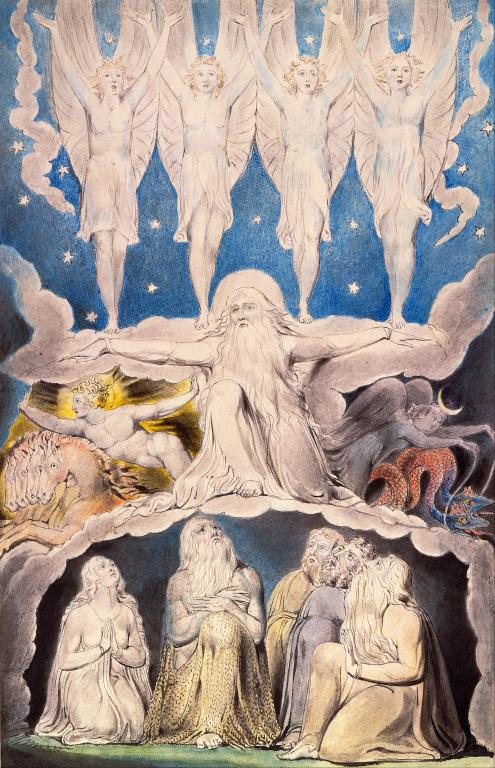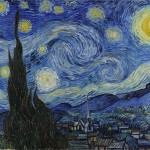The Art of Manliness and Reading Fiction
The Art of Manliness recently put out an article on why men ought to read more fiction. The article centred around the idea that reading fiction improves one’s theory of mind. As I understand it, theory of mind is what allows to understand and contemplate other minds (i.e. Using theory of mind, I can discern what another individual is thinking in a given situation). I suppose we might call this a person’s ability to ‘read people’, to a gain an understanding of what they’re thinking and how they’re feeling without them telling us. According to the research Brett McKay did for this article, men are apparently more deficient at this than women.
One way for men to increase their theory of mind is to read more fiction. It appears that reading the narratives and dialogues contained within fiction works as kind of theory of mind exercise. Thus, allowing oneself to be enmeshed in a good novel is practice for ‘reading’ people in the real world. McKay notes that according to the research, it does not matter what kind of fiction a man reads, all fiction reading will increase his theory of mind ability. McKay cites a telephone interview he had with a Dr. Oatley, a proponent of the idea that reading fiction increases men’s theory of mind. According to Dr. Oatley the kind of fiction men ought to read is a null question, ‘[Dr. Oatley’s] response [to the question of what kind of fiction men should read] was to read whatever interests you, whether it’s highbrow Russian novels or lowbrow dime paperbacks.’ If the end is simply increased theory of mind ability, then the means is whatever kind of fiction you choose to read.
Men Certainly Ought to Read Fiction
I’ll be honest, I really enjoy reading The Art of Manliness. I think McKay tackles real issues and needs in men’s lives today, as well as provides articles that are simply fun. McKay’s encouragement for men to read more fiction is laudatory. Having been an avid reader of fiction for my entire literary life, I must say that I do not fit the paradigm of men who do not read fiction, but I will certainly take any exhortation to read more. I also think that the result of reading fiction McKay introduces, increased theory of mind, is one of many reasons for men to be reading more fiction. I do wonder, however, if the conclusion of the article is useful. The idea that because reading anything increases theory of mind leads to the conclusion that one then ought to read anything. For many this will lead to read only what is simple or perhaps literarily bad. The exhortation for men to read fiction is not enough, we need men (and women) to be reading good fiction, even if it has no more of an effect on the increase of one’s theory of mind.
Why Read ‘Good’ Fiction
Reading, and especially reading fiction, must be more than about one goal. If our goal was only to increase our theory of mind, then why not read what is simplest? Why challenge ourselves to read anything of substance if a comic book or trashy romance novel will do the same without over taxing our minds on other issues like morality, philosophy, or religion. Reading any fiction may increase our theory of mind, but only reading ‘good’ fiction will increase our vocabulary, our knowledge of the world and people, and our understanding of life.
Why Even ‘Good’ Fiction Is Not Enough
Even then, reading Evelyn Waugh, or Kurt Vonnegut, or Oscar Wilde (all typically recognised as ‘good’ authors by the literatti) is deficient. As a Christian, I committed to an understanding of the world that centres around who God is and how he has, does, and will interact with this world. A Christian worldview must recognise that there is no secular autonomy. This means that when authors attempt to deal with issues they see as universals they are still approaching them through their individual (and corporate) presuppositions. Some do this consciously. Philip Pullman’s His Dark Materials series is intended as a kind of anti-Chronicles of Narnia. He intends to introduce his audience (children) to atheism. Others, however, inject their presuppositions somewhat (if not totally unconsciously). Christopher Paolini’s Inheritance Cycle does just this. Paolini betrays his secular understanding of reality when he shows the dwarves, the only religious people, as simple, particularly when compared to the almost purely rational elves. Thus we cannot take for granted any autonomous universality. I’m not saying we should not read such authors, simply that we must (as Christians) take into account the implicit and explicit presuppositions and implications of any fiction we read and hold it to the divine standard, which is the only standard. All participate in this standard to some extent and it is our job to increase our participation in it and recognise where others do participate and where they deviate.
What Are We to Read?
In the end, I recommend that we read what good fiction. By good fiction, I do not necessarily mean what is considered good by English professors or professional critics. Instead I mean we ought mainly to read fiction that participates in the divine standard. I don’t mean we should read only cheesy Christian fiction, or even that we should read only fiction written C. S. Lewis, J. R. R. Tolkien, G. K. Chesterton, and others of that ilk. My suggestion is that we read fiction that is both good in terms of the level of writing (in style, grammar, and vocabulary) and that is good in terms of how well it participates in God. When we read fiction, we ought to be changed (in fact we are changed or, if the fiction is poor, we are maintained or even decreased). We ought to read books that make us think about real issues, but we must read with discernment and try to root out the presuppositions behind a text.
So, by all means read simple fiction. I love reading comic books and certain children’s fiction (though I submit that good children’s fiction is often only simple in style and vocabulary, but that the ideas presented are still good and useful for personal growth). Do not, however, stop with simple fiction. Challenge yourself in both the level of writing and the ideas presented. Above all, remember that there is no universal autonomy. If God is the creator of this world then all of creation participates in God. Thus, while all truth is God’s truth we must still be careful about the presuppositions underlying any work of fiction (really anything, not simply fiction). All creation may participate in God, but all rational creatures can still work against that participation (hence the fall of Satan and the Fall of humanity). What kind of fiction we read may not make a difference in the increase of our theory of mind, but it does make a difference on how actively we participate in God.
Some Recommendations
Finally, here are some books I’ve read that I think will help both increase your theory of mind as well as your participation in God (this list is by no means comprehensive, nor will each book be as good, in either sense, as one another or others you may have read):
Out of the Silent Planet by C. S. Lewis
Perelandra by C. S. Lewis
That Hideous Strength by C. S. Lewis
The Simarillion by J. R. R. Tolkien
The Hobbit by J. R. R. Tolkien
The Lord of the Rings by J. R. R. Tolkien
The Swiss Family Robinson by Johann David Wyss
Robinson Crusoe by Daniel Defoe
Phantastes by George MacDonald
The Princess and the Goblin by George MacDonald
The Princess and Curdie by George MacDonald
The Faerie Queene by Edmund Spenser
The Divine Comedy by Dante Alighieri
Jane Eyre by Charlotte Brontë
Pride and Prejudice by Jane Austen
Sense and Sensibility by Jane Austen (really any Jane Austen)
See my Goodreads page for books I’ve read and check out some of my friends and what they’ve read as well (in fact, just sign up for Goodreads and ask to be my friend, but mention this post or else I might not add you back).
What do you think? What kind of fiction should we be reading?











